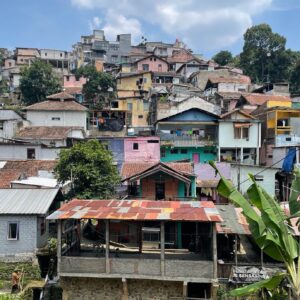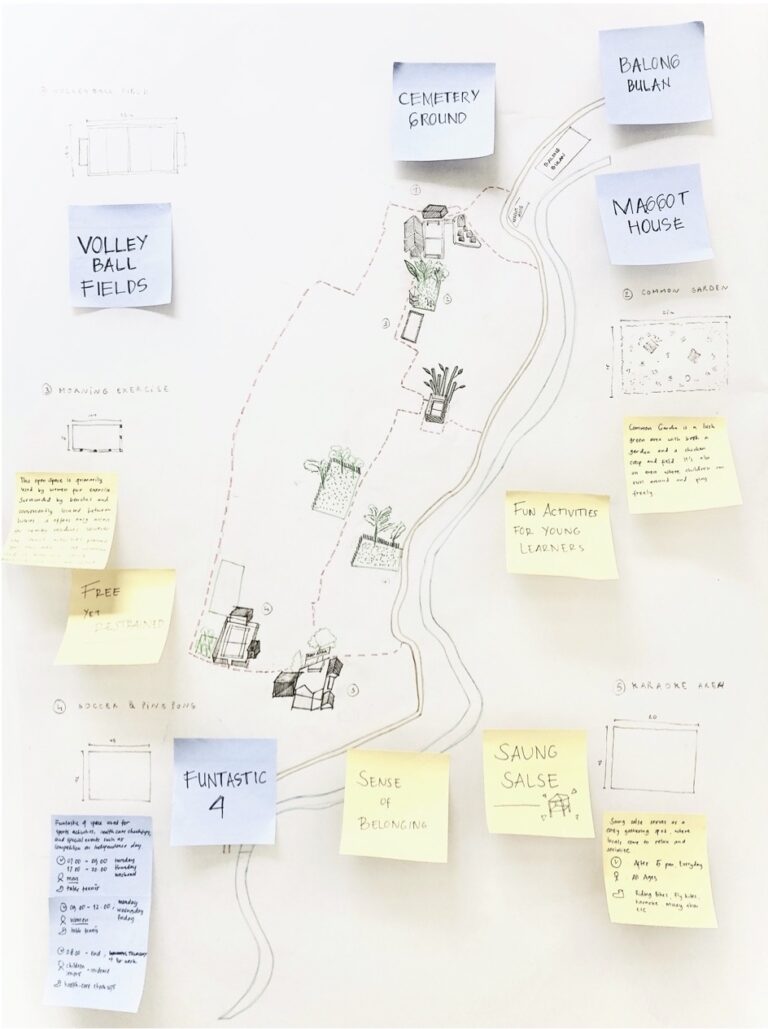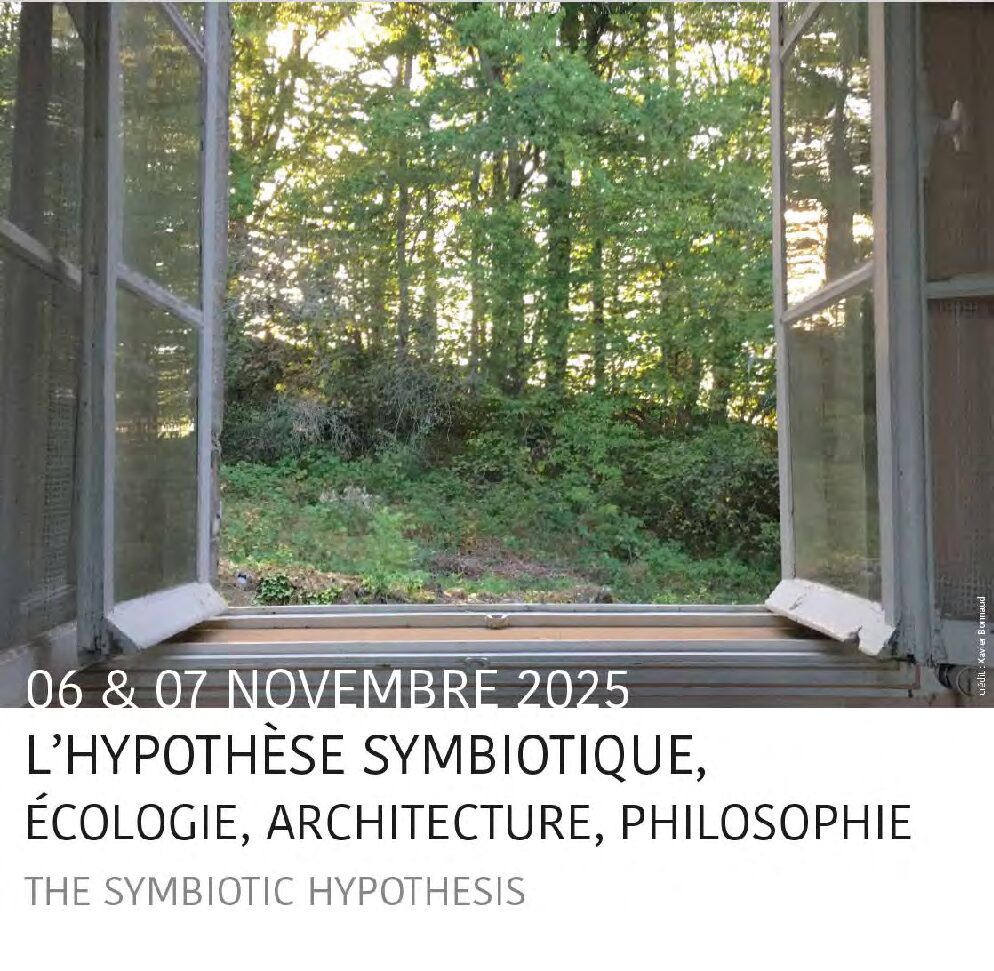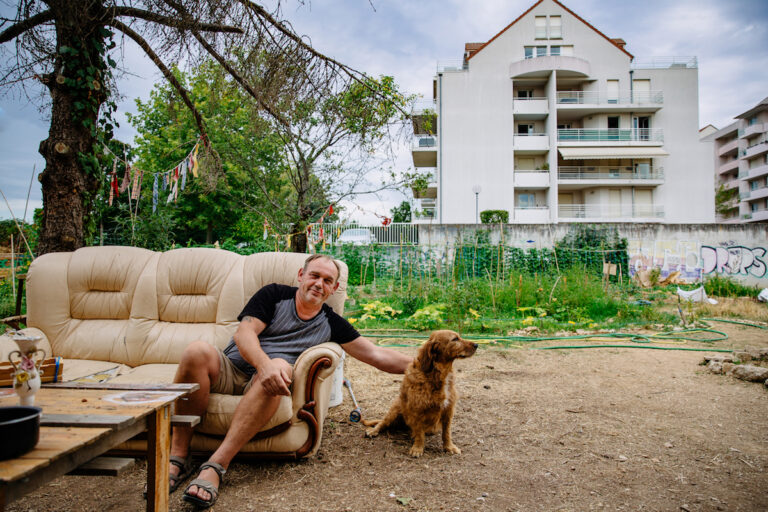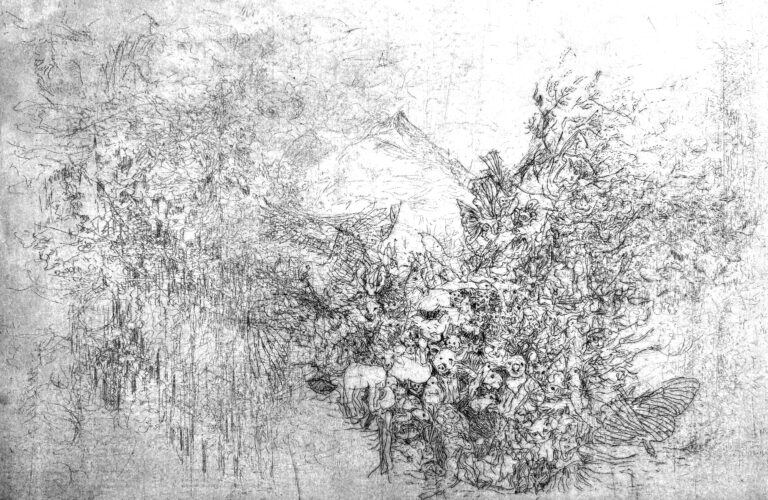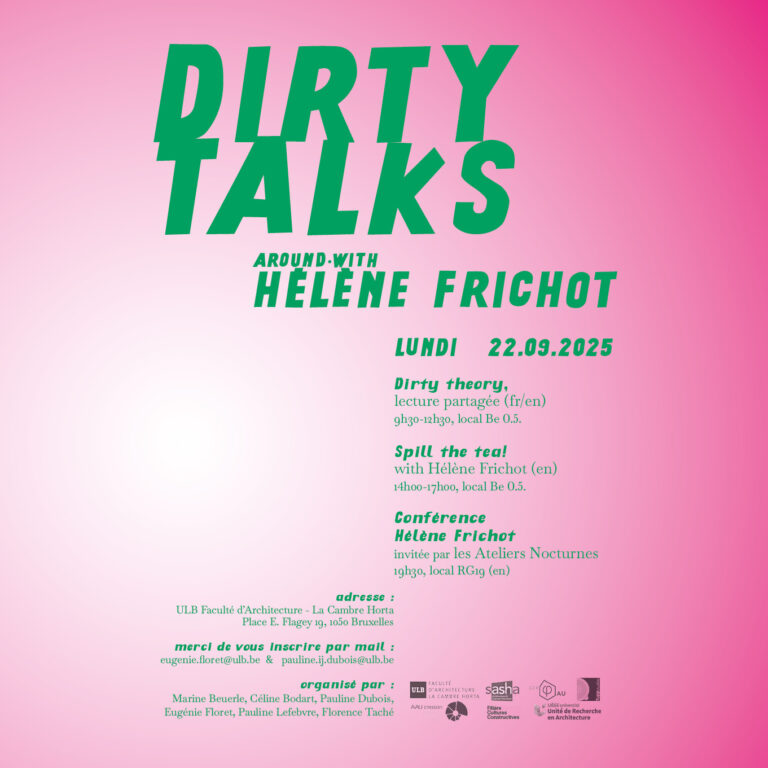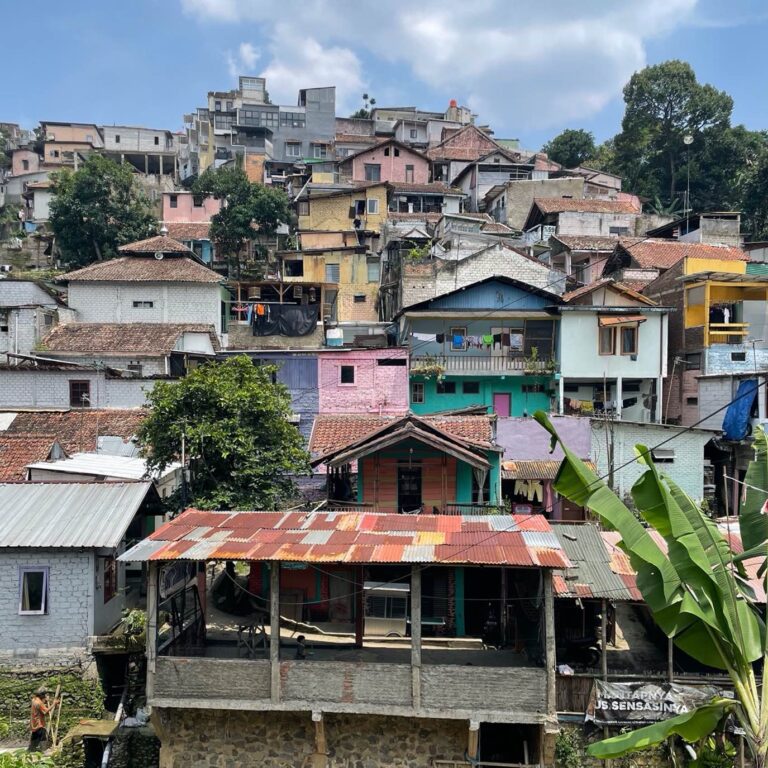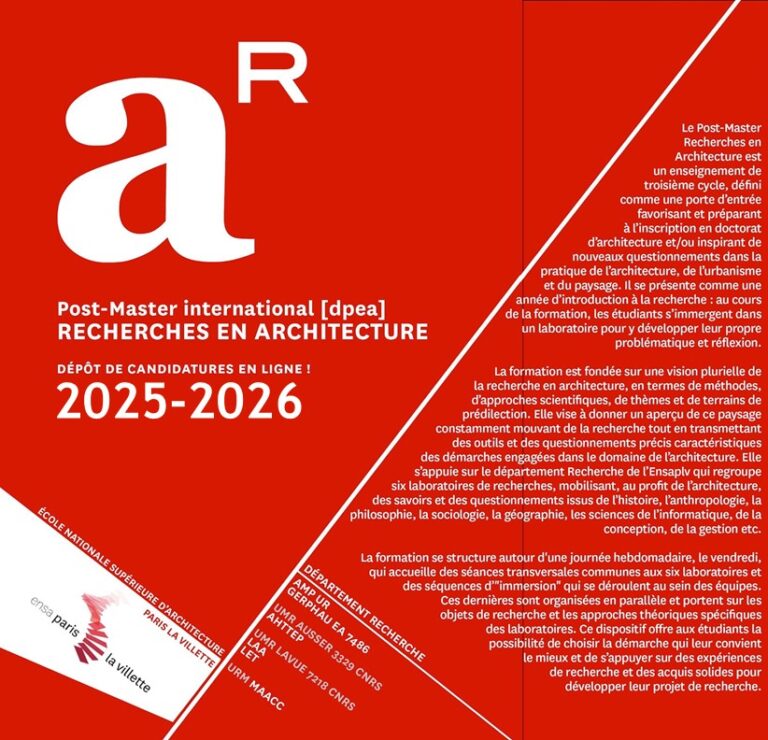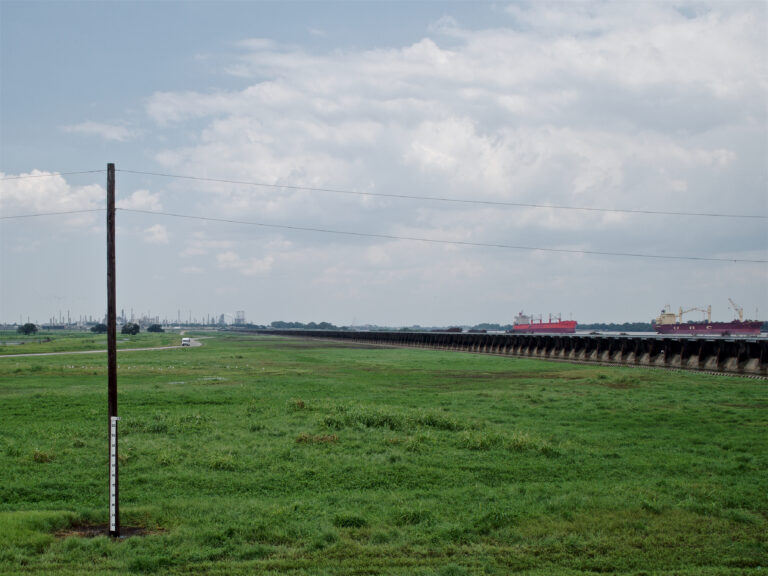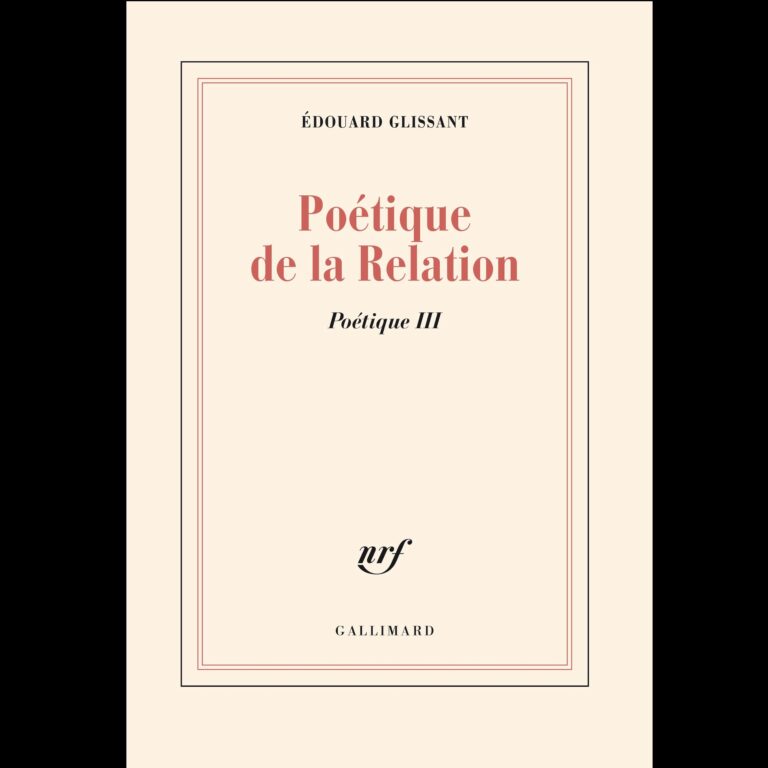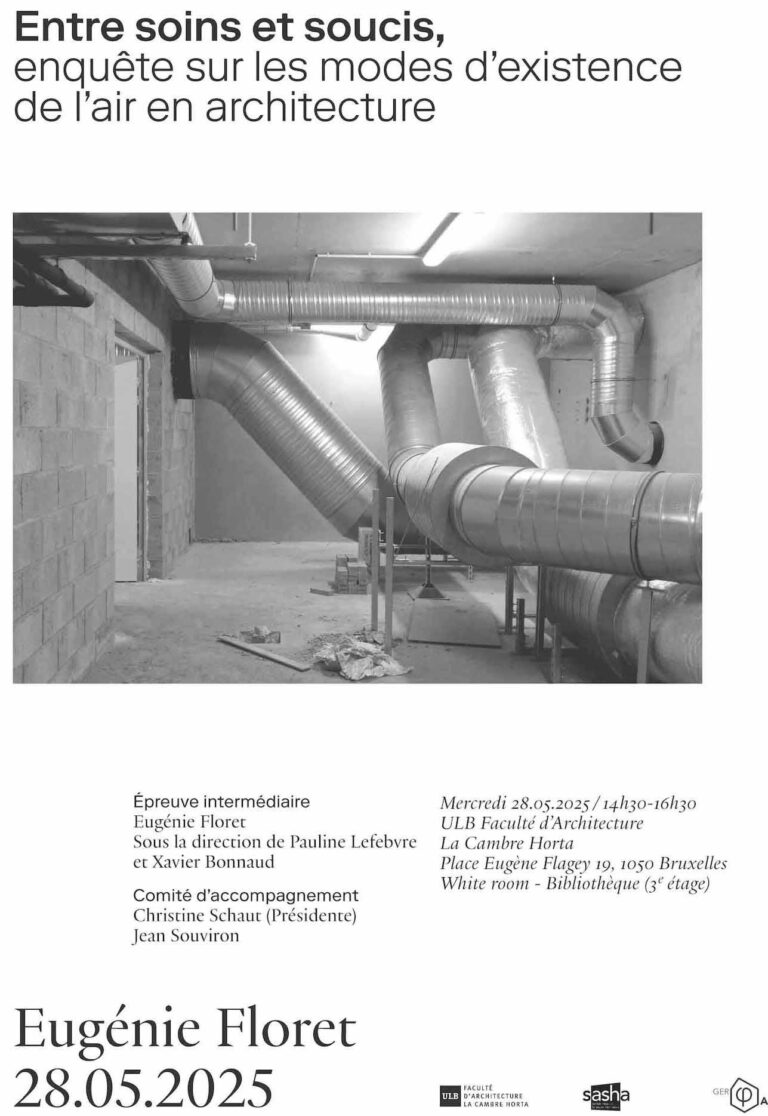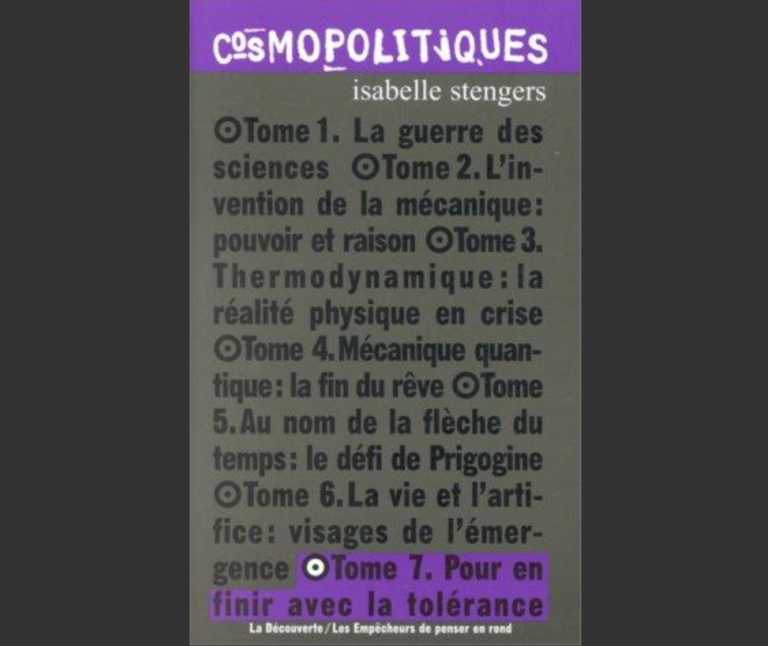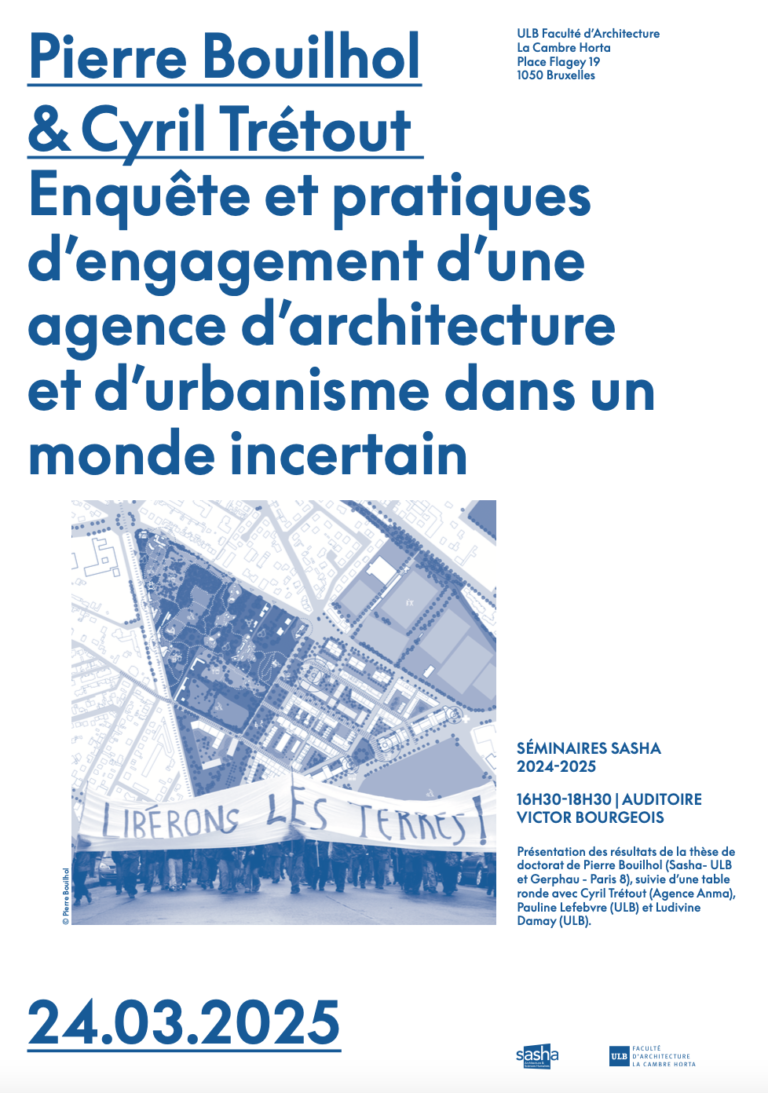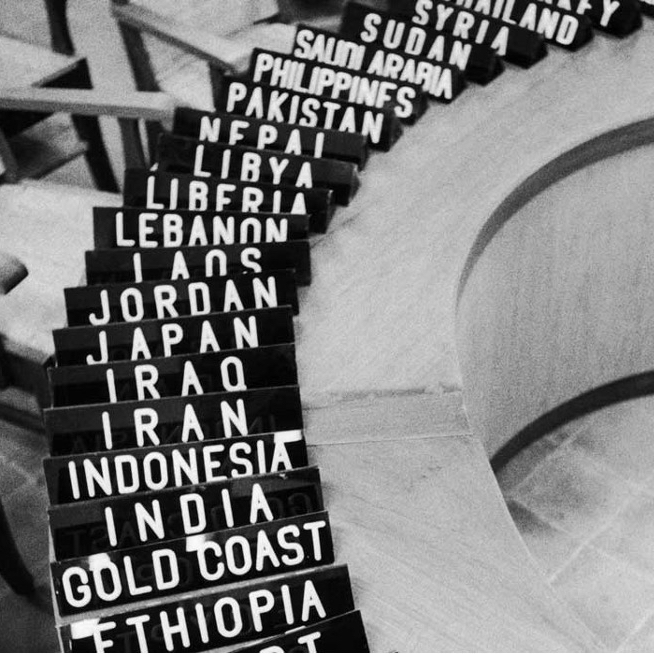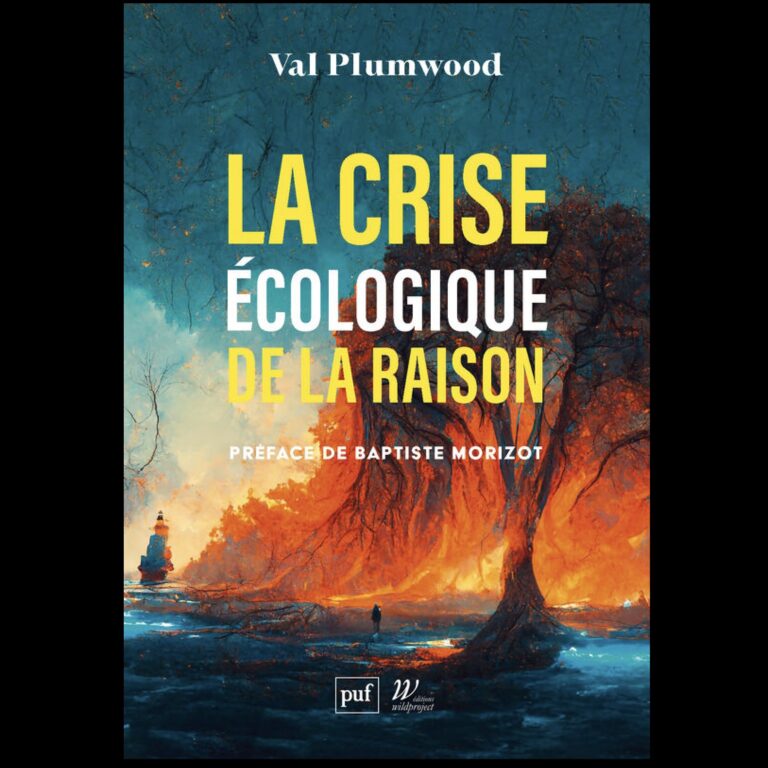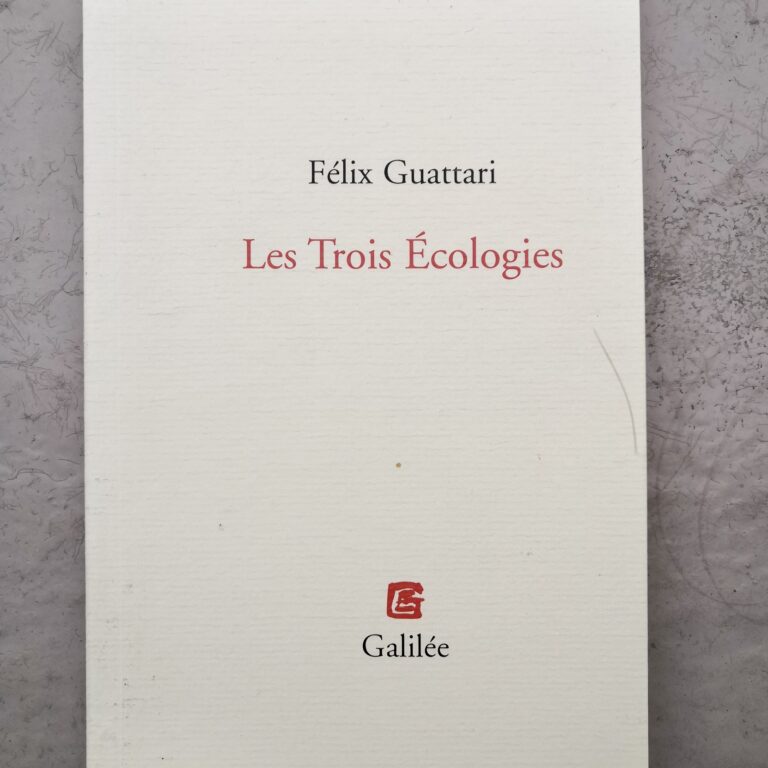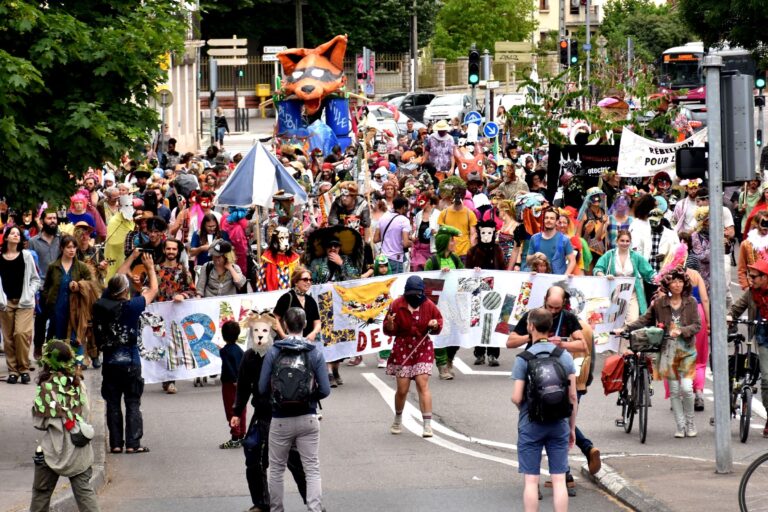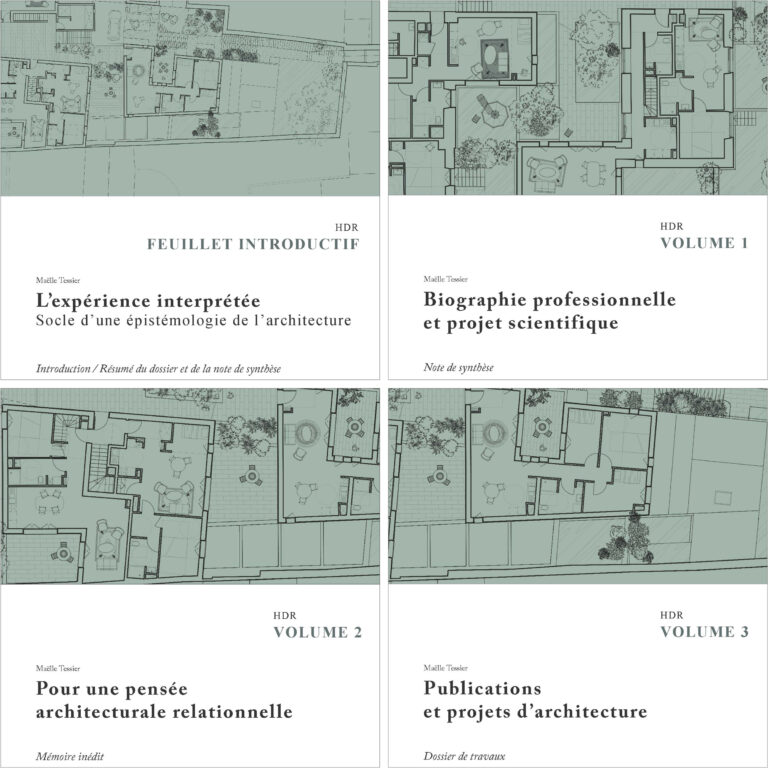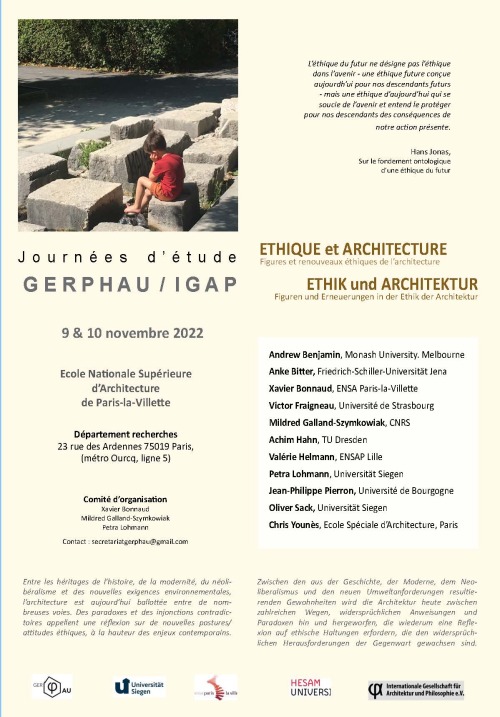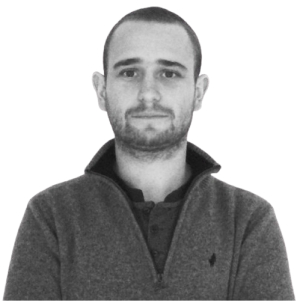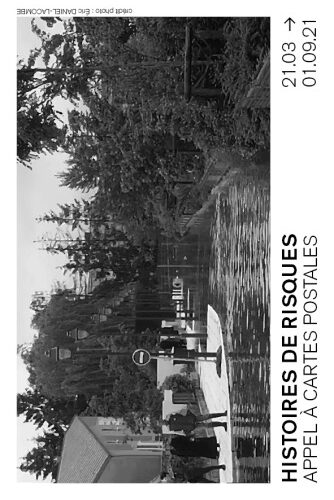
DISCUSSION DE CUISINE #1, GERPHAU 25-26
Autour du retour de terrain
ENSA Paris-la Villette, Gerphau 17h30
Cette première "discussion de cuisine " de l'année 2026 propose de revenir sur le workshop international "Learning from the Kampung : récits d'informalité et de résilience urbaines". Celui-ci s'est tenu en août 2025 à Bandung dans le cadre d'une coopération de recherche consacrée à l'étude des quartiers populaires indonésiens et menée par le Gerphau en collaboration avec plusieurs partenaires institutionnels, universitaires et associatifs locaux. Nous mettrons en discussion les résultats de cette première expérience de terrain et les questions méthodologiques...

Colloque international
L’hypothèse symbiotique : écologie, architecture, philosophie
Cité de l'architecture, Paris
L’installation humaine, par ses modes de vie et ses cultures d’aménagement, pèse aujourd’hui sur la planète au point de détruire, à une vitesse inquiétante, les aménités du système Terre et la possibilité d’un avenir habitable. Cette mécanique de désolation et d’atrophie des milieux de vie nous inquiète et nous mobilise : elle nous engage dans un chantier intellectuel qui exige d’intenses synergies entre disciplines. Ce colloque international vise à en mobiliser trois, l’écologie, l’architecture, la philosophie, autour d’une hypothèse qui...

Appel à communication Journées d'étude
Pratiques du projet et mobilisations citoyennes : habiter, résister, expérimenter
ENSA Paris-la Villette et ENSA Versailles
Ces deux journées ont pour objectifs d’interroger les formes que prennent les conflits d’aménagement aujourd’hui ainsi que la manière dont l’architecture et les concepteurs s’y trouvent impliqués. Ces journées d’étude visent la construction d’une scène de discussion pluraliste entre chercheurs, concepteurs, activistes, enseignants, artistes, agents publics, membres d’association afin de croiser analyses théoriques, retours d’expérience, récits de terrain et démarches alternatives de production spatiale. Ainsi, à travers ces situations, nous souhaitons mettre en avant les relations complexes entre les différents...

Appel à communication Colloque
MARGES DE MANŒUVRE #03. Faire, Défaire, Refaire : Interroger le Renversement
ENSA Paris-la Villette et ENSA Versailles
Depuis 2023, les arts et techniques de la représentation (ATR) des ENSA ont organisé à l’échelle nationale plusieurs journées d’étude : Marges de manœuvre #01, « Ce que peut l’enseignement des Arts et Techniques de la Représentation en temps de crise » (ENSA-Clermont-Ferrand et ENSA-Paris Est), Marges de manœuvre #02, « L’art comme puissance de faire dans les écoles d’architecture et du paysage » (ENSA-Marseille et ENSA-Montpellier). En un temps où la pensée est remise en question, ces moments de rencontre autour de...

Journée d'études
DIRTY TALKS around·with Hélène Frichot
ULB La Cambre (BXLS) 09h30
Journée d’étude (FR/EN) autour du travail de Hélène Frichot et plus particulièrement de son ouvrage Dirty Theory. Cette journée aura lieu le 22 septembre 2025 dans les locaux de la faculté d'architecture de l'ULB, site de Flagey à Bruxelles. La matinée sera consacrée à un arpentage du livre (dès 9h30), l’après-midi à une discussion autour et en présence de Hélène Frichot (en anglais) et la soirée sera une conférence donnée par elle-même dans le cadre des Ateliers Nocturnes (association étudiante...

Joint international research workshop
Learning from the Kampung: Stories of urban informality and resilience
Bandung, Indonesia
With Learning from Las Vegas (1972), Robert Venturi, Denise Scott-Brown and Steven Izenour defined a new canon in architectural theory: an evidence-based manifesto that combined writing, drawing, photography and design – what Rem Koolhaas would later call a “retroactive manifesto”. Equally original was the methodology and process involving studio teaching, fieldwork and interdisciplinary research. This workshop proposes to extend and reinterpret the “lessons” of Las Vegas and other manifesto cities as part of a transcultural genre for global urban studies in...

INSCRIPTIONS 2025-26
Post-Master International, Recherches en architecture
ENSA Paris la Villette
Ce post-master est un enseignement de troisième cycle qui se définit comme une porte d’entrée favorisant et préparant à l’inscription en doctorat d’architecture ou, préparant à de nouvelles pratiques de l’architecture, de l’urbanisme et du paysage. Le but de cette année « transitoire » est d’apprendre à produire un mémoire de recherche. Ce mémoire prendra des formes distinctes suivant les objectifs de l’étudiant. Ces objectifs peuvent être de poursuivre un travail de recherche en thèse pour l’obtention d’un doctorat en...

Conférence dans le cadre du Post-Master Recherches en architecture
Matthieu Duperrex. Trouble de la situation et paradigme de l’enquête en Anthropocène
ENSA Paris la Villette, Gerphau 14h00
L'après-midi débutera à 14h par une communication ouverte à la discussion intitulée "Trouble de la situation et paradigme de l'enquête en Anthropocène" et sera suivi d'une conférence performée "Le peuple aux sédiments perdus. Parcours en Louisiane".

Séminaire Gerphau 24-25
Les lectures du Gerphau # 4.
ENSA Paris la Villette, Gerphau 17h30
Pour nourrir et questionner cet espace de travail entre architecture et philosophie, l’équipe se rassemble suivant les temporalités d’un séminaire organisé chaque année, ponctué de rencontres mensuelles. Tous les deux mois, ces rencontres sont dédiées à la lecture d'un texte choisi collectivement. Dans le cadre de la 4è rencontre, nous nous réunissons autour d'un texte d'Édouard Glissant, Poétique de la Relation.

THÈSE, EP. INTERMÉDIAIRE - EUGÉNIE FLORET
Entre soins et soucis, enquête sur les modes d’existence de l’air en architecture
ULB La Cambre (BXLS) 14h30
Dans les entrailles de l'architecture, dans les locaux techniques dédiés au traitement de l’air, des personnes veillent sur des machines qui elles-mêmes s’activent pour maintenir nos conditions de respiration. Qu'est-ce que le soin de l'air dès lors qu'il est délégué aux machines ? Pourquoi une telle artificialisation ? Pourquoi une telle recherche de contrôle ? Et pour quels effets sur les airs ? Pour quels effets sur nos corps ? C'est ce qu'interroge ce travail de thèse pour mieux comprendre...

Séminaire Gerphau 24-25
Les lectures du Gerphau # 3.
ENSA Paris la Villette, Gerphau 10h00
Pour nourrir et questionner cet espace de travail entre architecture et philosophie, l’équipe se rassemble suivant les temporalités d’un séminaire organisé chaque année, ponctué de rencontres mensuelles. Tous les deux mois, ces rencontres sont dédiées à la lecture d'un texte choisi collectivement. Dans le cadre de la 3è rencontre, nous nous réunissons autour d'un texte d'Isabelle Stengers, le livre 7 des Cosmopolitiques : Pour en finir avec la tolérance.

Séminaire public - Pierre Bouilhol
Enquête et pratiques d’engagement d’une agence d’architecture et d’urbanisme dans un monde incertain
Faculté d'architecture de l'Université libre de Bruxelles - Auditoire Bourgeois 16h30
Dans un monde incertain, face à l’écologisation, que signifie s’engager pour une agence d’architecture ? Comment ces engagements se traduisent-ils en pratique et à quoi se retrouvent-ils confrontés, voire même empêchés ?

COLLOQUE INTERNATIONAL ET INTERDISCIPLINAIRE
“L’Esprit de Bandung” dans l’architecture et l’urbanisme du Global South: paradigmes, projets et pratiques
Université Le Havre Normandie
En 1955, les dirigeants de 29 États d'Afrique et d'Asie se sont réunis à Bandung, en Indonésie, pour la Conférence afro-asiatique historique – un sommet diplomatique du monde postcolonial émergent. Le sens de l'objectif commun et de la solidarité, ainsi que les principes partagés mis en avant lors de la réunion comme le fondement d’un nouvel ordre mondial dans le contexte de la guerre froide, ont donné naissance à l'expression « l'Esprit de Bandung » pour caractériser la sensibilité collective...

Séminaire Gerphau 24-25
Les lectures du Gerphau # 2.
ENSA Paris la Villette, Gerphau 17h30
Pour nourrir et questionner cet espace de travail entre architecture et philosophie, l’équipe se rassemble suivant les temporalités d’un séminaire organisé chaque année, ponctué de rencontres mensuelles. Tous les deux mois, ces rencontres sont dédiées à la lecture d'un texte choisi collectivement. Dans le cadre de la 2è rencontre, nous nous réunissons autour d'un texte de Val Plumwood, La crise écologique de la raison.

Séminaire Gerphau 24-25
Les lectures du Gerphau # 1.
ENSA Paris la Villette, Gerphau 17h30
Pour nourrir et questionner cet espace de travail entre architecture et philosophie, l’équipe se rassemble suivant les temporalités d’un séminaire organisé chaque année, ponctué de rencontres mensuelles. Tous les deux mois, ces rencontres sont dédiées à la lecture d'un texte choisi collectivement. Dans le cadre de la 1ère rencontre, nous nous réunissons autour d'un texte de Félix Guattari, Les Trois Écologies.

Soutenance de thèse / Pierre Bouilhol
Les natures politiques du projet urbain. Ethnographie d’une agence d’architecture et d’urbanisme à l’épreuve de son écologisation
ENSA Paris La Villette 14h00
Le laboratoire SASHA et le laboratoire GERPHAU ont le plaisir de vous annoncer la soutenance de thèse de doctorat en architecture, art de bâtir et urbanisme de Pierre Bouilhol réalisée dans le cadre d'une cotutelle entre l'Université libre de Bruxelles et l'Université Paris 8 (ED 31 Pratiques et théories du sens).

Soutenance HDR / Maëlle Tessier
L’expérience interprétée. Socle d’une épistémologie de l’architecture
Paris 8
Maëlle Tessier, professeure tpcau à l’ensa Nantes et chercheure au gerphau soutiendra son Habilitation à Diriger des Recherches à Paris 8 sur : "L’expérience interprétée / Socle d’une épistémologie de l’architecture" Lundi 4 mars à 14h30 à l'École nationale supérieure d'architecture Paris-La Villette, 23 rue des Ardennes, 75019 Paris Salle des séminaires RDC Le jury sera composé d'Alain Sinou – architecte, sociologue, professeur des universités à Paris 8 et HDR, Emmanuelle Lallement, anthropologue et professeure des universités, à Paris 8...

Journée d'études
« Ethique et architecture »
ENSA PLV
Deux journées d’études organisées conjointement par le GERPHAU et l’IGAP, le mercredi 9 novembre et le jeudi 10 novembre 2022.

Soutenance de thèse de doctorat
Romain MANTOUT
ENSAPLV 14h30
Soutenance de thèse de doctorat en architecture de Romain MANTOUT, inscrite sous la direction d’Antonella Tufano à l’Université PARIS 8, ED 31 Pratiques et théories du sens, École Nationale Supérieure d’Architecture de Paris-la-Villette, Équipe d’accueil GERPHAU, EA 7486.
Soutenance de thèse
Farnoosh MOKHLES
Paris et Téhéran 17h30
Approche paysagère du centre-ville : localisation et définition du centre-ville actuel de Téhéran.

Appel à cartes postales
Histoire de risques
En amont du colloque “ Faire face aux risques, architecture et philosophie ” la chaire partenariale de recherche et d'enseignement “ nouvelles urbanités face aux risques naturels : des abris ouverts ” et le laboratoire GERPHAU, EA 7486, lancent un appel à contributions intitulé “ Histoires de risques ”.


